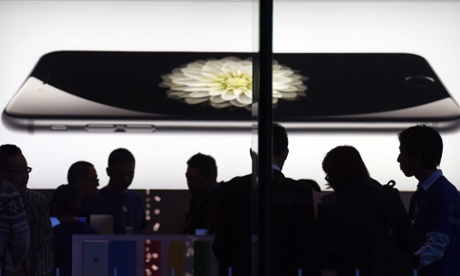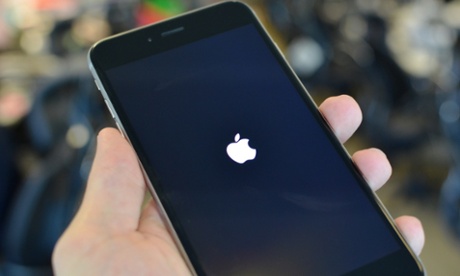Following complaints about the large amount of storage that Apple’s latest software iOS 8 takes up on its iPhones and iPads, the US tech firm is being sued for the alleged misrepresentation of the storage capacity of the devices.
The plaintiffs claim Apple’s advertising does not fully represent the total amount of storage available to the users and that iOS 8 made it worse, taking up a larger amount of space without informing those upgrading.
“The defendant fails to disclose to consumers that as much as 23.1% of the advertised storage capacity of the devices will be consumed by iOS 8 and unavailable for consumers when consumers purchase devices that have iOS 8 installed,” wrote Jonas P Mann of US law firm Audet & Partners in a complaint filed in the northern district of California.
The suit is being brought on behalf of two Miami residents, Paul Orshan and Christopher Endara, who claim to have bought iPhones and iPads in the last year advertised with 16GB of storage but providing less to the user. The pair, who hope to turn the complaint into a class action, are seeking $5m (£3.3m) in damages and a trial by jury.
Mann said: “In reality, nothing close to the advertised capacity of the devices is available to end users. Indeed, the discrepancy between advertised and available capacity is substantial and beyond any possible reasonable expectation. For the devices, the shortfall ranges from 18.1-23.1%.
“Each gigabyte of storage Apple shortchanges its customers amounts to approximately 400-500 high-resolution photographs.”
It is standard practice for consumer electronics manufacturers to advertise the total storage capacity of their devices without disclosing the amount taken up by the pre-loaded software.
But the plaintiffs claim Apple goes further by preventing customers from adding additional memory via microSD cards and by advertising a pay-for cloud storage service when storage on the device is full. Many rival manufacturers do allow additional memory via microSD.
When the internal hard drive of an iPhone or iPad approaches “full”, a popup advert opens offering the purchaser the opportunity to purchase iCloud cloud storage, said Mann. “Using these sharp business tactics, the defendant gives less storage capacity than advertised, only to offer to sell that capacity in a desperate moment, eg, when a consumer is trying to record or take photos at a child or grandchild’s recital, basketball game or wedding.”
Apple’s latest operating system update, touted as the “biggest iOS release ever” on its release, was beset with issues in September that forced the company to pull its health app and service. The iOS 8 update also caused connectivity issues for some devices, and was removed before being reissued twice with bug fixes.
The biggest problem for most users was the size of the update, however, which meant that some wishing to install it on their iPhones and iPads without a computer were forced to delete large amounts of data from their devices before the update would download.
The update then reduced the total amount of space available to the users compared with the previous version of the operating system, iOS 7, the plaintiffs claim.
Apple has faced and defeated similar suits in the past, including one from 2012 in Canada that alleged the company misrepresented the amount of storage available to users on the iPod.
Microsoft was also sued and defeated a case in California in 2012 over a similar issue with its Surface tablets.
Apple has yet to respond to requests for comment on the latest lawsuit.











